Is a Subaru Extended Warranty Worth the Cost? A Guide to 'Added Security' Plans
What Exactly is a Subaru Added Security Plan?
When we talk about a Subaru extended warranty, we're referring to what Subaru officially calls their 'Added Security' plans. These are essentially vehicle service agreements designed to protect you from unexpected repair costs after your original factory warranty expires. Think of it as an insurance policy for your car's mechanical components. Unlike your initial manufacturer's warranty, which comes standard with a new vehicle, an Added Security plan is an optional purchase. It's designed to extend coverage for key components, helping you budget for potential future repairs and maintain that legendary Subaru reliability for years to come. These plans are backed by Subaru of America, Inc., ensuring that repairs are done by authorized Subaru technicians using genuine Subaru parts.
The Types of Subaru Added Security Plans: Classic vs. Gold Plus
Subaru offers two primary tiers for their Added Security plans, each providing different levels of coverage:
Subaru Added Security Classic Plan
The Classic Plan is Subaru’s more basic, yet still comprehensive, offering. It's often compared to the original powertrain warranty, covering major components. This typically includes:
- Engine: Major components like the cylinder block, cylinder heads, crankshaft, timing belt, and more.
- Transmission: Components of the transmission, transaxle, and drive axle, including the housing, torque converter, and internal parts.
- All-Wheel Drive (AWD) System: Key components related to Subaru's famous Symmetrical All-Wheel Drive.
- Towing & Rental Car: Some roadside assistance and rental car reimbursement benefits are often included.
This plan is an excellent choice if you're primarily concerned with protecting against the most expensive, catastrophic failures related to the vehicle's powertrain and AWD system.
Subaru Added Security Gold Plus Plan
The Gold Plus Plan is the crème de la crème of Subaru's extended warranty offerings. It's much more extensive, covering almost everything the Classic Plan does and significantly more. Subaru markets it as 'bumper-to-bumper' coverage, with only a short list of exclusions. This plan extends protection to hundreds of parts, including:
- All components covered by the Classic Plan.
- Electrical System: Wiring harnesses, alternators, starters, power windows, etc.
- Steering: Power steering pump, steering gear, linkage.
- Brakes: Master cylinder, power booster, calipers, wheel cylinders (excluding wear items).
- Air Conditioning & Heating: Compressor, condenser, evaporator, heater core.
- Fuel System: Fuel pump, fuel injectors, fuel tank.
- Suspension: Control arms, ball joints, springs (excluding wear items).
- Enhanced Roadside Assistance: More robust benefits like trip interruption and emergency dispatch.
The Gold Plus plan provides superior peace of mind, covering the vast majority of mechanical and electrical components, making it a popular choice for those seeking comprehensive protection for their Subaru.
What's Covered (and Not Covered) by Subaru's Extended Warranty?
While the Gold Plus plan offers near bumper-to-bumper coverage, it's crucial to understand that no extended warranty covers absolutely everything. Generally, Subaru Added Security plans cover mechanical breakdowns of specified parts due to manufacturing defects or normal wear and tear that leads to failure. What's NOT typically covered, regardless of the plan, are 'wear and tear' items that are part of routine maintenance or require replacement due to normal use. This includes:
- Tires
- Brake pads and rotors
- Wiper blades
- Light bulbs
- Clutch linings
- Belts and hoses (unless part of a covered system failure)
- Spark plugs
- Regularly scheduled maintenance services (oil changes, tire rotations, etc.)
- Cosmetic damage (dents, scratches)
- Damage from accidents, misuse, or environmental factors (floods, fire)
- Aftermarket accessories not installed by Subaru
Always review the full contract details for a precise list of inclusions and exclusions. Understanding these specifics is vital before committing to a vehicle protection plan.
Understanding Your Factory Warranty First
Before even considering an extended warranty, make sure you're fully aware of your vehicle's existing new car warranty. New Subarus typically come with:
- 3-year/36,000-mile Bumper-to-Bumper Limited Warranty
- 5-year/60,000-mile Powertrain Limited Warranty
- 5-year/unlimited mileage Rust Perforation Limited Warranty
An Added Security plan begins when your original factory warranty expires, or it can run concurrently. If you purchase it early, the extended portion only kicks in after the factory coverage ends. Knowing your current coverage helps prevent redundant spending and ensures you time your purchase correctly if you choose to get one.
When to Consider a Subaru Extended Warranty
A Subaru extended warranty isn't for everyone, but there are specific scenarios where it offers significant value:
- Long-Term Ownership: If you plan to keep your Subaru for 7+ years or beyond 100,000 miles, the likelihood of needing repairs increases significantly.
- High-Tech Features: Modern Subarus come packed with advanced electronics (e.g., EyeSight, infotainment systems). Repairs for these can be costly, and the Gold Plus plan offers excellent coverage.
- Budgeting & Peace of Mind: If you prefer predictable monthly costs over the risk of a sudden large repair bill, an extended service agreement can provide invaluable peace of mind.
- Used Subaru Purchase: If you're buying a used Subaru whose factory warranty is nearing expiration or has already expired, an Added Security plan can protect your investment.
- Driving Habits: If you put a lot of miles on your vehicle or live in an area with harsh driving conditions, components may wear faster.
Considering your individual circumstances is key to determining if the Subaru protection offered aligns with your needs.
Weighing the Pros and Cons of Subaru Added Security
Making an informed decision means looking at both sides of the coin.
The Pros:
- Financial Protection: The primary benefit is safeguarding against unexpected and potentially expensive Subaru repairs. A single major repair could easily exceed the cost of the plan.
- Genuine Subaru Parts & Service: Repairs are performed by factory-trained technicians at authorized Subaru dealerships, using genuine Subaru parts, ensuring quality and maintaining your vehicle's integrity.
- Peace of Mind: Knowing that many potential issues are covered can significantly reduce stress and worry about future vehicle problems.
- Included Benefits: Often comes with valuable extras like 24/7 roadside assistance, rental car reimbursement, and trip interruption coverage.
- Increased Resale Value: These plans are transferable to a new owner, which can be a strong selling point when you eventually decide to sell your Subaru.
The Cons:
- Upfront Cost: Extended warranties can be a significant investment, sometimes thousands of dollars. You might pay for coverage you never use.
- Potential Overlap: If purchased too early, there's a period where your factory warranty and extended warranty overlap, though the extended coverage only activates post-factory warranty expiration.
- Exclusions & Deductibles: Not everything is covered, and most plans come with a deductible per repair visit, which you'll need to pay.
- Reliability: Subarus are known for their Subaru reliability. Many owners go years without major issues, making some question if the extra cost is always necessary.
Comparing Dealer vs. Third-Party Warranties
While this guide focuses on Subaru's own 'Added Security' plans, it's worth a brief mention that third-party extended warranty providers also exist. The main distinction is that Subaru Added Security plans are backed by Subaru of America and specifically designed for your vehicle, ensuring repairs are done at authorized dealerships with genuine parts. Third-party providers might offer lower costs or more flexible terms, but they may restrict where you can get repairs, or specify using non-OEM parts. For consistent quality and peace of mind, sticking with the manufacturer's own plan is often preferred for Subaru owners.
Tips for Buying a Subaru Added Security Plan
If you decide a Subaru extended warranty is right for you, here are some tips to ensure you get the best value:
- Timing is Key: You can typically purchase an Added Security plan anytime before your factory warranty expires. Often, it's cheaper to buy it when the car is newer and has fewer miles.
- Shop Around: While it's a Subaru product, different dealerships might offer slightly different pricing. Don't be afraid to get quotes from a few Subaru dealerships.
- Negotiate: Extended warranties often have room for negotiation on price. Be prepared to haggle a bit.
- Read the Fine Print: Thoroughly review the contract to understand precisely what is covered, what isn't, deductibles, transferability, and cancellation policies.
- Don't Be Pressured: Dealerships might push these plans heavily at the time of purchase. Take your time, do your research, and make a decision you're comfortable with.
Remember, this is a significant financial commitment, so diligence pays off.
Is It Worth It for YOU? Making the Decision
The question of whether a Subaru extended warranty is worth the cost ultimately boils down to your personal risk tolerance, financial situation, and how long you plan to keep your vehicle. If the thought of a $2,000+ repair bill keeps you up at night, and you intend to drive your Subaru well past its factory warranty, then a Gold Plus Added Security plan could be an excellent investment in your tranquility. If you're comfortable setting aside an emergency fund for potential repairs, or if you typically trade in your cars every few years, it might be an unnecessary expense. Consider your specific Subaru model, its known reliability trends, and your own budget for unexpected expenses. There's no universal answer, only the best decision for your unique circumstances.
Conclusion
Subaru's 'Added Security' extended warranty plans offer a robust way to protect your investment and ensure your beloved vehicle continues to perform for years to come. While they represent an additional cost, the peace of mind from knowing you're covered for unexpected repairs, coupled with the guarantee of genuine Subaru parts and expert service, can be invaluable for many owners. By understanding the different plan types, what's covered (and what's not), and carefully weighing the pros and cons against your personal driving habits and financial outlook, you can confidently decide if a Subaru extended warranty is truly worth the cost for you. Drive safe, and may your Subaru adventures be worry-free!Where can I find my VIN?

Related Topics
- Transferring Your Nissan Warranty: What You Need to Know for Resale Value
- Decoding the Standard Nissan Warranty: What "Bumper-to-Bumper" and "Powertrain" Really Cover
- Is a Nissan Extended Warranty Worth It? A Guide for Long-Term Owners
- The Nissan Certified Pre-Owned Advantage: Your Guide to Warranty, Benefits, and What Qualifies

